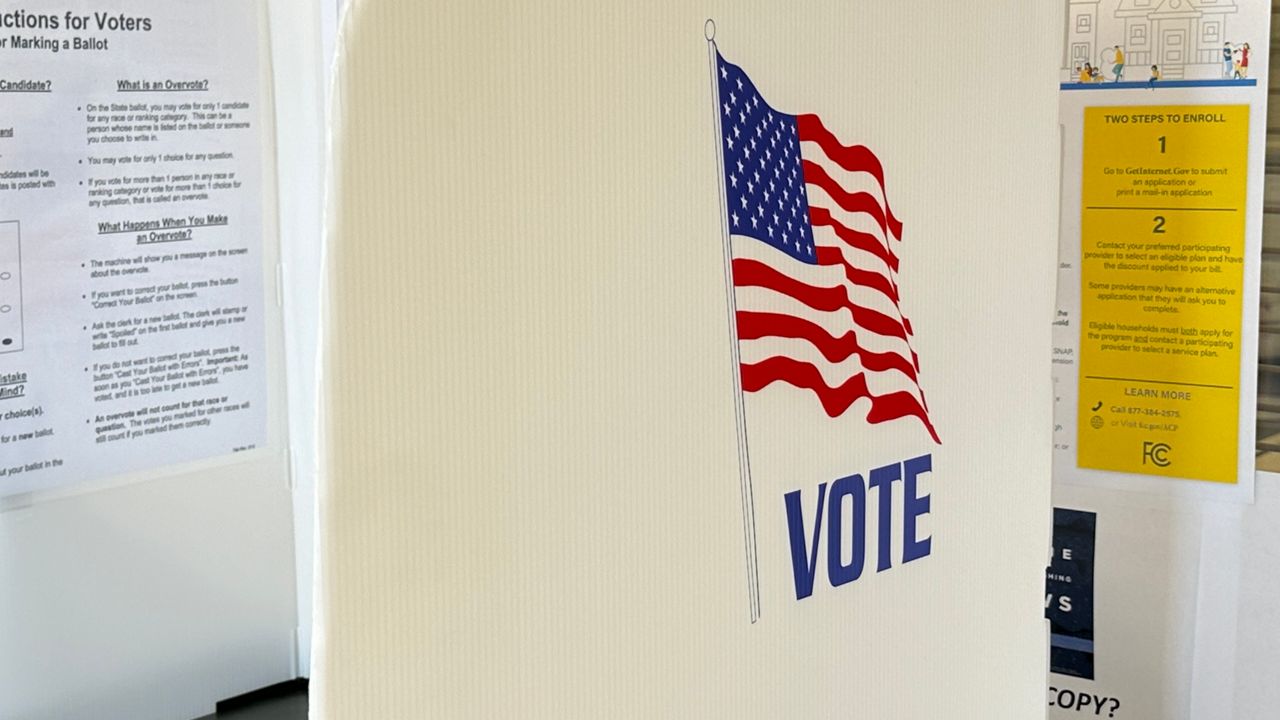One-third of Maine registered voters cast ballots in advance of Tuesday’s presidential election, prompting Maine election officials to predict high — if not record breaking — turnout.
“My sense is that turnout is very high,” Secretary of State Shenna Bellow said Monday. “Given the strength of absentee voting, again one in three Mainers having already voted absentee, we think we’re on track for yet another big year.”
State data shows 343,959 absentee ballots have been returned as of Friday.
In 2020, the last presidential election year, 76.3% of the eligible voting age population in Maine cast ballots. That put Maine third highest in the country, behind Minnesota (80%) and Colorado (76.4%). That year, voter turnout across the U.S. was 66.7%.
And in 2022, a gubernatorial election year, nearly 62% of Maine citizens of voting age participated, the highest rate of any state.
Bellows spent Monday visiting cities and towns to thank clerks for their work leading up to Election Day. While in Wiscasset, she presented Town Clerk Linda Perry with a box of chocolate chip cookies as Perry and others processed absentee ballots to prepare them for counting.
“Today is National Election Heroes Day,” Bellows said. “In Maine, we have clerks in every city and town working hard to prepare for tomorrow’s big day. Some of these clerks have worked for weeks without a day off.”
Across Maine, voting booths will be set up in high school gymnasiums, churches, civic centers and boy’s and girl’s clubs. Opening times vary by town, but all polls must remain open until 8 p.m.
Voters face big decisions this election, from the presidential contest on down.
In Maine, there are five presidential choices: former Republican President Donald Trump; Democratic Vice President Kamala Harris; Green Independent Jill Stein; Justice for All candidate Cornel West and Libertarian Chase Oliver.
Because Maine uses ranked-choice voting, that could mean it will take longer to get results than normal. If no candidate gets over 50% on election night, ballot tabulators and in some cases actual ballots from across Maine will be shipped to Augusta for a ranked-choice count in which the second-place votes for the candidate in last place will be redistributed.
The process continues until one candidate gets more than 50% of the vote.
Bellows said polling shows that it’s possible a ranked-choice count in the president contest will be necessary. She cautioned that local clerks have two days to certify results and send them to the state.
The 2nd Congressional District race, which is a choice between U.S. Rep. Jared Golden, a Democrat, and Republican state Rep. Austin Theriault, is one of the most closely watched contests in the country. It could help determine who controls the U.S. House of Representatives.
Statewide, all Mainers will decide the race for U.S. Senate, where incumbent Sen. Angus King, an independent, is facing three challengers: Republican Demi Kouzounas; Democrat David Costello and independent Jason Cherry.
In the 1st Congressional District, U.S. Rep. Chellie Pingree, a Democrat, faces two challengers: Republican Ronald Russell and independent Ethan Alcorn.
All 186 seats in the Maine Legislature are up for grabs and there are five statewide ballot questions.
Question 1 seeks to restrict contributions to certain types of political action committees. Question 2 is a request to allow the state to borrow $25 million for research and development. Question 3 is a $10 million bond for historic building preservation and Question 4 is a $30 million bond to support trails statewide.
And Question 5 asks voters whether they want to replace the current state flag — the farmer and sailor on a blue background — with an updated version of the pine tree and star flag on a buff background, last used in Maine in 1909.
In addition, local cities and towns will ask voters to decide on borrowing requests and other initiatives.



